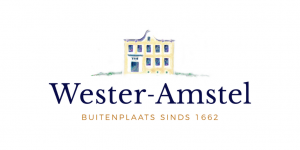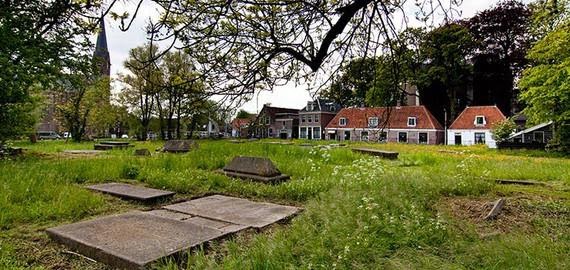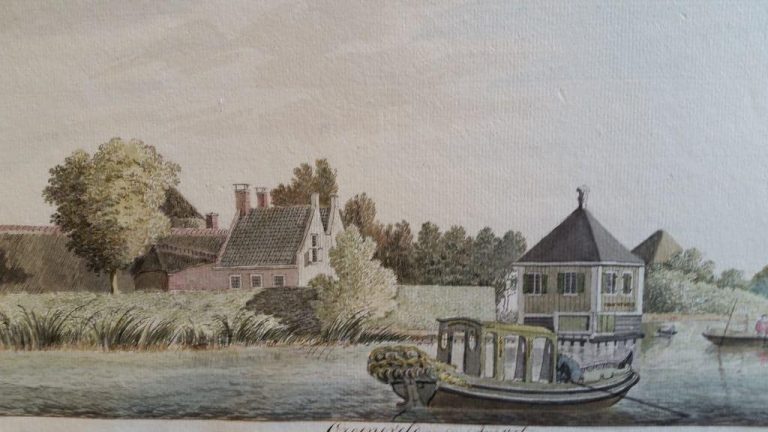In our preview for 2021, we announced our desire to organise new public indoor activities at Wester-Amstel. After three years of absence, we wanted to breathe new life in our rear hall, with a series of lectures, concerts and other indoor activities befitting a country estate.
The good news: we found in Beschermers Amstelland an excellent partner, willing to program and lead a series of lectures under the common theme ‘Amstelland Ontmoet’. And we agreed on a series of meetings this winter to be held once every two weeks on Sunday afternoons in the renewed rear hall.
The lesser news: Beschermers Amstelland had to postpone the meetings due to the rising Corona figures. For the time being the first meeting is adjourned to January 23. Whether this will actually happen can be followed on the website of Beschermers Amstelland and on our own website wester-amstel.nl under 'events'.
Still, we are pleased to present the following five meetings that will take place on Wester-Amstel. All meetings will be held on a Sunday afternoon, with a start time of 14:00 and an expected end time around 16:00. Afterwards, there will be an opportunity for an after-dinner conversation and drinks. Admission to these events is free; however, reservations are required. (Please note: These talks will be in Dutch)
Amstelland Meeting 1 - Relationship between man and nature
Guided by speaker Matthijs Schouten, city-folk, country-folk and farmers explore the way in which mankind has dealt with nature in the past, present and future. Man as a manager of nature, as a master of nature, as part of nature. How do we view this relationship from Amstelland?
Speaker: Speaker: Matthijs G.C. Schouten. Matthijs is a Dutch ecologist and philosopher employed by Staatsbosbeheer. He also holds an appointment as Extraordinary Professor of Ecology and Philosophy of Nature Restoration at the chair group of Nature Management and Plant Ecology at Wageningen University.
Amstelland Meeting 2 - The driving force of water
Together with co-organizer Amstelland Museum, we will discuss the social, economic and natural significance of water. How has water shaped the development and value of Amstelland over the centuries? This meeting will shed light on the history of Amstelland from the perspective of water. Water still plays a decisive role in Amstelland today. The role of the Amstel river, the polders, safety and the quality of the water will all be discussed.
Speakers: Maarten Ouboter (AGV/Waternet). Maarten is system manager of the Water System at Waternet and an expert in the field of water quality. He appears regularly in the media with his contributions on water quality in Amsterdam, Amstelland, Gooi and Vecht.
Amstelland Meeting 3 - The hidden function of cemeteries in Amstelland
This meeting is organized in cooperation with Beth Haim, the Portuguese-Israeli (Sephardic) cemetery in Ouderkerk aan de Amstel.
Amstelland Meeting 4 - The relationship between town and country
A conversation between farmers, city dwellers and administrators about the future of agriculture, landscape and nature in Amstelland. Where can we reinforce each other?
A conversation, introduced and accommodated by Renske Peters, chairman of Beschermers Amstelland, between those involved.
Amstelland Encounter 5: Farming at the Countryside. A study of the relationship between farming and country life in Amstelland (1640-1840)
Speaker: Gerrit van Oosterom. Gerrit is a landscape architect and land-use historian. He studies country house landscapes on a regional scale. Farming at the Buitenplaats is the result of his PhD research at the University of Groningen and will be published by Noordboek publishers in the spring of 2022. Wester-Amstel is one of the four cases that Van Oosterom describes in detail. We are therefore proud that the first copy of his book will be handed over during this lecture.
By: Søren Ludvig Movig



